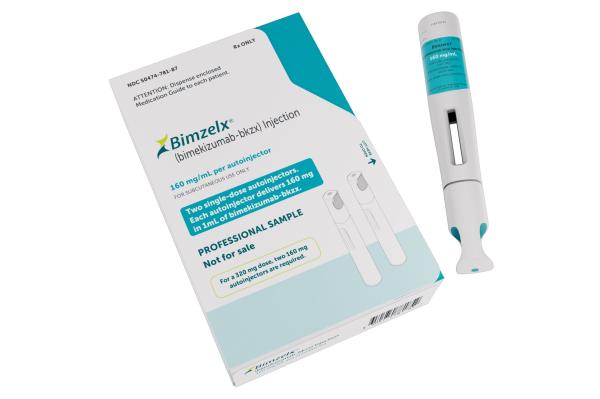Bimekizumab Disease Interactions
There are 4 disease interactions with bimekizumab.
Bimekizumab (applies to bimekizumab) liver disease
Moderate Potential Hazard, Moderate plausibility.
Bimekizumab can cause increased levels of liver enzymes and bilirubin. Treatment with bimekizumab should be avoided in patients with acute liver disease or cirrhosis as they may be at increased risk for severe hepatic injury.
Bimekizumab (applies to bimekizumab) active Inflammatory Bowel Disease (IBD)
Moderate Potential Hazard, Moderate plausibility.
Cases of Inflammatory Bowel Disease (IBD) have been reported in patients treated with bimekizumab. Treatment with bimekizumab should be avoided in patients with active IBD.
Bimekizumab (applies to bimekizumab) depression/suicidal ideation
Moderate Potential Hazard, Moderate plausibility.
Patients with a history of suicidal ideation or behavior reported a higher rate of new onset of suicidal ideation when treated with bimekizumab. Patients with a history of severe depression are also susceptible to suicidal ideation or behavior when treated with bimekizumab.
Bimekizumab (applies to bimekizumab) infections
Moderate Potential Hazard, Moderate plausibility. Applicable conditions: Infection - Bacterial/Fungal/Protozoal/Viral
Bimekizumab may increase the risk of infections, including tuberculosis (TB). Patients should be evaluated for any active infection before and during treatment with bimekizumab, and administration should be avoided if infection is detected. Evaluate patients for TB before treatment and avoid therapy in patients with active TB. Anti-TB therapy should be considered for patients with a history of latent or active TB.
Switch to professional interaction data
Bimekizumab drug interactions
There are 318 drug interactions with bimekizumab.
More about bimekizumab
- bimekizumab consumer information
- Check interactions
- Compare alternatives
- Reviews (30)
- Side effects
- Dosage information
- During pregnancy
- Drug class: interleukin inhibitors
- Breastfeeding
- En español
Related treatment guides
Drug Interaction Classification
| Highly clinically significant. Avoid combinations; the risk of the interaction outweighs the benefit. | |
| Moderately clinically significant. Usually avoid combinations; use it only under special circumstances. | |
| Minimally clinically significant. Minimize risk; assess risk and consider an alternative drug, take steps to circumvent the interaction risk and/or institute a monitoring plan. | |
| No interaction information available. |
See also:
Further information
Always consult your healthcare provider to ensure the information displayed on this page applies to your personal circumstances.


